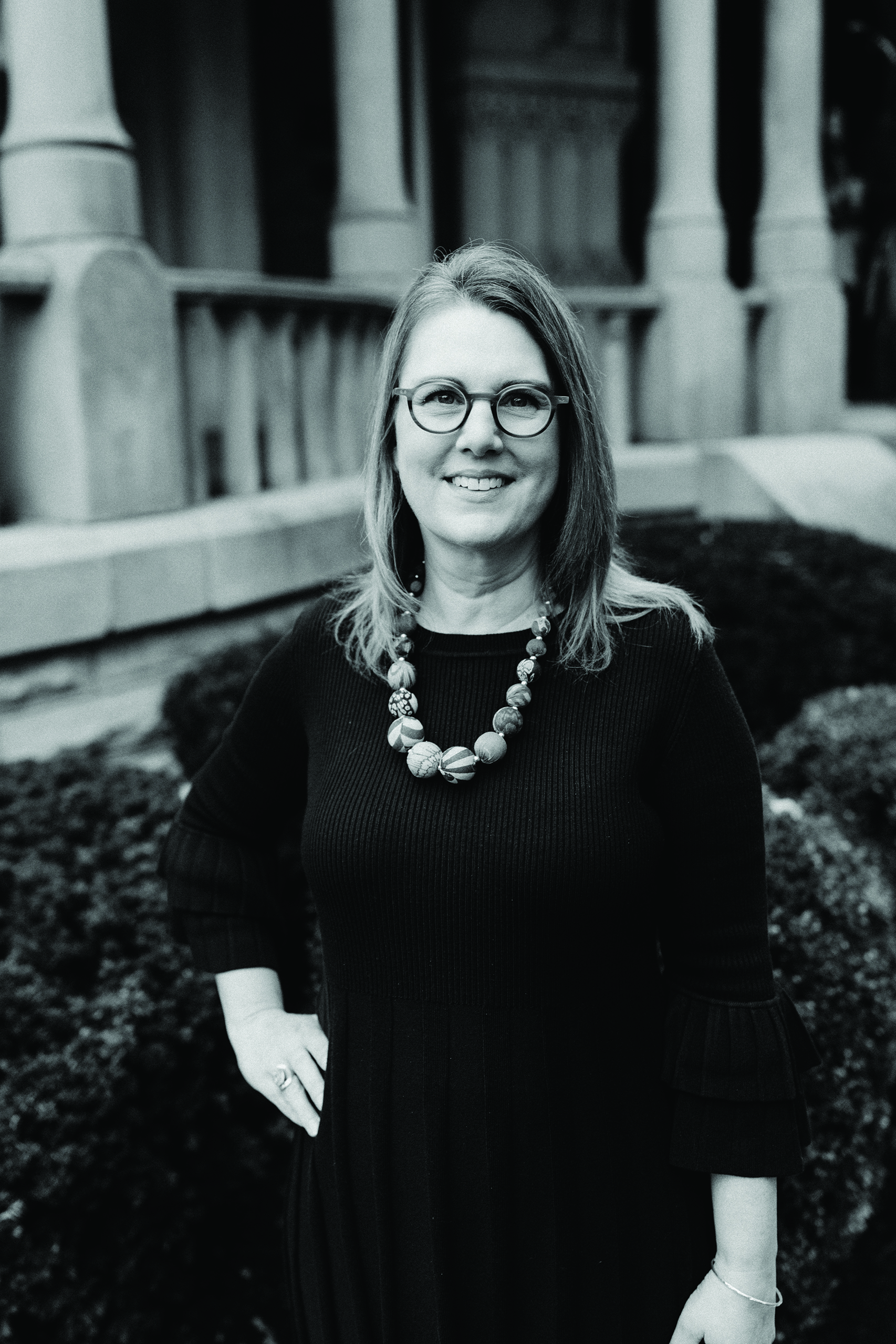
Photo by Kaitlyn Huff, Huff Photography
AS A VISUAL person with a sight impairment, my eye health has been a lifelong priority. When I was around 5 years old and learned how to read, it became apparent that my vision tests were not in the range of normal. My left eye could distinguish letters and numbers clearly, but its counterpart did not match up. The sight in my right eye has always been blurry and obscured by a blind spot in my upper field of view. It took some trial and error with eye doctors in my hometown before I was referred to pediatric ophthalmologists at the IU School of Medicine. Throughout elementary school, I got to play hooky one day a year to come to Indy and have my pupils dilated for an annual round of intensive examination. The (almost) fun part usually came later in the day with trips to the Children’s Museum, the zoo, or downtown department stores following my appointments. I say “almost” because I spent most of those jaunts wearing ill-fitting sunglasses and trying to avoid bright lights.
Testing revealed the source of my vision problems but offered no solutions or cures. In short, I had a structural anomaly in the back of my eye that could not be repaired. And now, after decades of my brain adjusting to and rebalancing my lopsided sight, trying to fix it would likely do more harm than good.
Over the years, I’ve visited a long roster of eye specialists to assess and maintain my quality of vision. One of my favorites, Dr. Robert Yee of IU, regularly took honors in our Top Doctors list before he retired 15 years ago. Since then, I’ve continued to consult our listings to find care not only for my eyes, but also for knee injuries, dermatology screenings, and food allergies, among other health concerns. I hope you, the reader, find this issue equally useful as a year-round resource to help you locate providers to treat whatever ails you.




